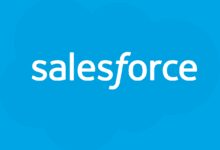CRM System Pricing: 7 Shocking Truths You Can’t Ignore
Choosing the right CRM system pricing model can make or break your business growth. With so many options, hidden fees, and confusing tiers, it’s easy to overspend—or underinvest. Let’s cut through the noise and reveal what you’re really paying for.
Understanding CRM System Pricing: The Big Picture

Customer Relationship Management (CRM) systems have evolved from simple contact databases into powerful platforms that drive sales, marketing, and customer service. But with that evolution comes complexity—especially when it comes to CRM system pricing. Understanding the full scope of costs is essential before making a decision.
What Is a CRM System?
A CRM system is software designed to manage all your company’s interactions with current and potential customers. It helps streamline processes, improve customer relationships, and boost profitability. From tracking leads to automating follow-ups, a CRM acts as the central nervous system of your sales and marketing operations.
- Stores customer data in one centralized location
- Tracks interactions across email, phone, and social media
- Automates repetitive tasks like email campaigns and follow-ups
“A CRM isn’t just a tool—it’s a strategy. The right one can transform how you engage with customers.” — Forbes
Why CRM System Pricing Matters
The cost of a CRM system isn’t just about the monthly subscription. Hidden fees, integration costs, training, and scalability all play a role. A poorly chosen CRM can lead to wasted budgets, low user adoption, and missed opportunities.
- Over 60% of CRM projects fail due to poor planning and budgeting (Nucleus Research)
- Underestimating total cost of ownership (TCO) is one of the top reasons for CRM abandonment
- Choosing based solely on price often leads to feature gaps and inefficiencies
Types of CRM Systems and Their Pricing Models
Not all CRM systems are created equal—and neither are their pricing structures. The type of CRM you choose directly impacts how you’ll pay for it. Let’s explore the main categories and their associated CRM system pricing models.
Operational CRM: Sales, Marketing, Service
Operational CRMs focus on automating core business processes. These include lead management, sales forecasting, campaign management, and customer support workflows.
- Sales automation: $25–$150/user/month (e.g., Salesforce)
- Marketing automation: $400–$1,200+/month (e.g., HubSpot)
- Service automation: $25–$100/user/month (e.g., Zendesk)
These systems often use tiered pricing based on features and user count. Entry-level plans may lack advanced automation, while enterprise versions include AI and deep analytics.
Analytical CRM: Data-Driven Insights
Analytical CRMs focus on processing customer data to generate insights. They help businesses understand customer behavior, predict trends, and personalize experiences.
- Often bundled with operational CRMs (e.g., Salesforce Einstein Analytics)
- Standalone tools like Microsoft Dynamics 365 charge extra for advanced analytics modules
- Pricing can range from $50–$300/user/month depending on data depth and AI capabilities
These systems require robust data integration and often come with higher setup costs.
Collaborative CRM: Connecting Teams and Channels
Collaborative CRMs enhance communication between departments and across customer touchpoints. They integrate email, chat, phone, and social media into a unified interface.
- Tools like Zoho CRM and Freshsales offer collaborative features in mid-tier plans
- Typical pricing: $12–$40/user/month
- Often include shared calendars, team inboxes, and real-time activity feeds
These systems reduce silos but may require additional training for cross-functional adoption.
Common CRM System Pricing Models Explained
CRM system pricing isn’t one-size-fits-all. Vendors use different models to charge for their services. Understanding these models helps you compare apples to apples.
Per-User Pricing: The Most Common Model
This is the standard in the industry: you pay a fixed amount per user per month. It’s simple to understand but can become expensive as your team grows.
- Examples: Salesforce ($25–$300/user/month), HubSpot ($45–$1,200/user/month)
- Pros: Predictable, scalable, easy to budget
- Cons: Can be costly for large teams; some vendors limit features per tier
Watch out for “team” vs. “professional” vs. “enterprise” tiers—each unlocks different capabilities.
Tiered Feature-Based Pricing
Vendors bundle features into tiers (e.g., Basic, Professional, Enterprise). As you move up, you get more functionality—but at a higher price.
- Basic: $10–$25/user/month – contact management, basic automation
- Professional: $30–$75/user/month – workflows, reporting, integrations
- Enterprise: $80+/user/month – AI, advanced security, custom code
This model encourages upselling. You might start with Basic but quickly outgrow it, forcing an upgrade.
Flat-Rate and Unlimited User Plans
Some CRMs offer flat-rate pricing for unlimited users, ideal for small businesses or startups.
- Examples: Insightly ($29–$77/month flat), Pipedrive (starts at $14.90/user but offers team discounts)
- Pros: Cost-effective for teams under 10 users
- Cons: Limited scalability; may lack enterprise-grade features
These plans are rare at the enterprise level but popular among SMBs.
Hidden Costs in CRM System Pricing You Must Know
The advertised price is rarely the final price. Many companies underestimate the total cost of ownership (TCO) because they ignore hidden fees. Let’s uncover the most common ones in CRM system pricing.
Implementation and Onboarding Fees
Setting up a CRM isn’t plug-and-play. You need data migration, user training, and workflow configuration.
- Consulting fees: $5,000–$50,000+ (especially for Salesforce or Microsoft Dynamics)
- DIY options exist but require technical expertise
- Some vendors offer free onboarding (e.g., HubSpot for Starter plan)
According to Panorama Consulting, implementation costs can exceed software costs in the first year.
Integration and API Costs
Your CRM needs to talk to your email, calendar, ERP, and marketing tools. But integrations aren’t always free.
- Native integrations: Often included (e.g., Gmail, Outlook)
- Third-party connectors via Zapier: $20–$100/month
- Custom API development: $10,000–$100,000+ for complex systems
Always check if your must-have integrations are included or cost extra.
Customization and Development Costs
Every business is unique. You’ll likely need custom fields, workflows, or dashboards.
- Low-code customization: Available in most CRMs (e.g., Zoho, Salesforce Lightning)
- Custom development: Requires certified developers (Salesforce admins charge $150+/hour)
- Template-based solutions: Cheaper but less flexible
Customization can double your initial investment if not planned carefully.
Top CRM Platforms and Their Real-World Pricing
Let’s compare the most popular CRM platforms and break down their actual CRM system pricing—including what’s included and what’s not.
Salesforce: The Enterprise Leader
Salesforce dominates the enterprise CRM market with unmatched scalability and ecosystem.
- Essentials: $25/user/month (basic CRM)
- Professional: $75/user/month (automation, workflows)
- Enterprise: $150/user/month (API access, customization)
- Unlimited: $300/user/month (24/7 support, sandbox)
But wait—add-ons like Einstein AI ($50+/user/month) and Pardot (marketing automation, $1,500+/month) can skyrocket costs. Implementation often exceeds $20,000.
“Salesforce is powerful, but its complexity and cost make it overkill for many small businesses.” — Gartner
HubSpot CRM: The SMB Favorite
HubSpot offers a free CRM with premium tiers for growing businesses.
- Free: $0 – contact management, email tracking, basic automation
- Starter: $45/month – sales hub, live chat, meetings scheduling
- Professional: $450/month – advanced workflows, reporting, sequences
- Enterprise: $1,200/month – custom objects, team management
HubSpot’s pricing is per hub (Sales, Marketing, Service), so costs multiply quickly. A full stack can exceed $3,000/month.
Microsoft Dynamics 365: The Integrated Powerhouse
Dynamics 365 integrates tightly with Microsoft 365 and Azure, making it ideal for existing Microsoft shops.
- Sales Professional: $65/user/month
- Customer Service: $95/user/month
- Marketing: $2,000/month (plus $200/user for engagement)
- Enterprise plans require custom quotes
Implementation is complex and often requires a Microsoft partner. Total first-year cost can reach $100,000 for mid-sized firms.
How to Choose the Right CRM System Pricing for Your Business
Choosing the right CRM isn’t about finding the cheapest option—it’s about maximizing value. Here’s how to align CRM system pricing with your business needs.
CRM system pricing – CRM system pricing menjadi aspek penting yang dibahas di sini.
Assess Your Business Size and Needs
A startup with 5 sales reps has different needs than a 500-person enterprise.
- Small businesses: Prioritize ease of use and low entry cost (e.g., HubSpot Free, Zoho CRM)
- Mid-market: Look for automation, integrations, and scalability (e.g., Pipedrive, Freshsales)
- Enterprise: Focus on security, customization, and AI (e.g., Salesforce, Dynamics 365)
Don’t overbuy. Start simple and scale as needed.
Calculate Total Cost of Ownership (TCO)
TCO includes software, implementation, training, integrations, and maintenance.
- Software: $20–$300/user/month × users × 12 months
- Implementation: $5,000–$50,000 (one-time)
- Training: $1,000–$10,000 (depending on team size)
- Maintenance: 15–20% of software cost annually
Example: A 20-person team on Salesforce Professional ($75/user/month) would spend $18,000/year on software—but $40,000+ with implementation and training.
Negotiate and Leverage Discounts
CRM vendors expect negotiation, especially for annual contracts and large teams.
- Ask for annual billing discounts (10–20% off)
- Bulk user discounts: Common for 50+ users
- Educational and nonprofit discounts: Available from Salesforce, HubSpot, Microsoft
- Reseller deals: Partners often offer better pricing and free setup
Never pay the listed price without asking for a discount.
Future Trends in CRM System Pricing
The CRM landscape is evolving fast. New technologies and business models are reshaping CRM system pricing.
Rise of AI-Powered CRM Features
AI is no longer a luxury—it’s becoming standard. But it comes at a cost.
- Salesforce Einstein: $50–$100/user/month
- HubSpot AI Tools: $300+/month add-on
- Microsoft Copilot for Sales: $30/user/month
Expect AI features to be unbundled and priced separately. The trend is toward “pay for intelligence.”
Subscription Fatigue and Bundled Pricing
Businesses are tired of juggling multiple SaaS subscriptions. Vendors are responding with bundled suites.
- HubSpot’s “Single Platform” strategy: Sales, Marketing, Service, CMS in one
- Microsoft 365 + Dynamics 365 bundles
- Google Workspace + CRM integrations (via partners)
Bundled pricing can reduce costs and complexity—but only if you use all the tools.
Usage-Based and Outcome-Based Pricing
Some vendors are experimenting with pricing based on usage or results.
- Pay-per-email (rare, but emerging in marketing CRMs)
- Revenue-sharing models (e.g., CRM takes % of sales generated)
- Transaction-based pricing (e.g., per deal closed)
While not mainstream yet, these models could disrupt traditional CRM system pricing in the next 5 years.
Free CRM Options and Their Limitations
Free CRMs are tempting, especially for startups and solopreneurs. But they come with trade-offs in CRM system pricing and functionality.
Top Free CRM Platforms
Several reputable vendors offer free CRM tiers.
- HubSpot CRM: Free forever – contact, deal, task management
- Zoho CRM: Free for up to 3 users – basic automation, email integration
- Bitrix24: Free for unlimited users – CRM, tasks, communication
- Insightly: 14-day free trial, then starts at $29/month
These are great for testing or small teams but lack advanced features.
Hidden Limitations of Free CRMs
Free doesn’t mean feature-complete.
- Limited automation (e.g., only 1 workflow in free HubSpot)
- No API access or custom fields
- Basic reporting only
- Support limited to community forums
As your business grows, you’ll likely need to upgrade—often at a steep price jump.
When to Upgrade from a Free CRM
It’s time to upgrade when:
- You have more than 5 active users
- You need automation beyond basic sequences
- You’re integrating with other tools (ERP, accounting, etc.)
- You require role-based access or advanced security
- Sales volume exceeds 50 deals/month
Delaying an upgrade can hurt productivity and data integrity.
What is the average cost of a CRM system?
The average cost of a CRM system ranges from $12 to $250 per user per month. Small businesses can start with free or $10–$30/user/month plans, while enterprise solutions like Salesforce or Microsoft Dynamics 365 can exceed $300/user/month when factoring in add-ons and implementation.
Are there any truly free CRM systems?
Yes, there are truly free CRM systems like HubSpot CRM and Zoho CRM (for up to 3 users). However, they come with limitations in features, automation, and scalability. They’re ideal for startups and small teams but may require upgrading as your business grows.
What factors influence CRM system pricing?
Key factors include number of users, feature tier, deployment type (cloud vs. on-premise), integration needs, customization, AI capabilities, and vendor support. Implementation, training, and maintenance also significantly impact total cost.
Can I negotiate CRM pricing with vendors?
Yes, most CRM vendors are open to negotiation, especially for annual contracts, bulk users, or nonprofit/educational organizations. Working with a reseller or partner can also unlock discounts and free setup services.
Is a more expensive CRM always better?
Not necessarily. A more expensive CRM offers advanced features, but it may be overkill for small businesses. The best CRM is the one that fits your specific needs, budget, and scalability requirements—not the one with the highest price tag.
CRM system pricing is far more complex than a simple monthly fee. From hidden implementation costs to AI add-ons and scalability challenges, the true cost goes beyond the sticker price. The key is to evaluate not just the software, but the total value it delivers. Whether you’re a solopreneur or an enterprise, understanding the full picture of CRM system pricing empowers you to make smarter, more strategic decisions. Choose wisely—your bottom line depends on it.
CRM system pricing – CRM system pricing menjadi aspek penting yang dibahas di sini.
Further Reading:


